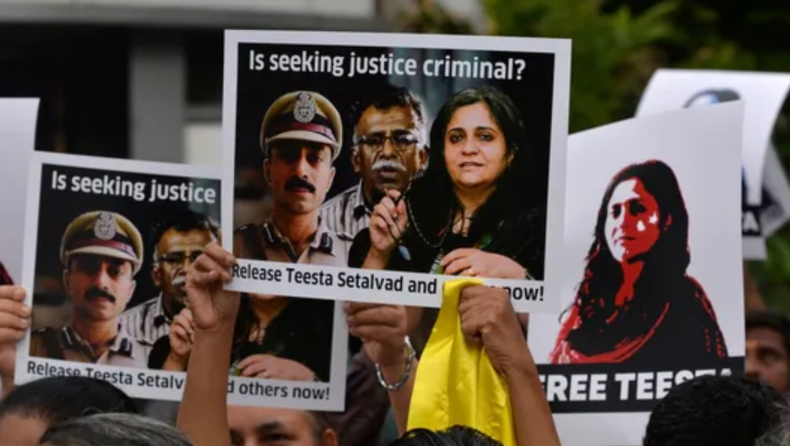
India rejects the Office of the United Nations High Commissioner for Human Rights (OHCHR) condemnation of the arrest of rights campaigner Teesta Setalvad and two others. The ministry of external affairs said the OHCHR’s remarks were “totally unnecessary”.
On Wednesday, India rejected the Office of the United Nations High Commissioner for Human Rights (OHCHR) condemnation of the arrest of rights campaigner Teesta Setalvad and two others, stating that authorities had followed established court procedures.
In a tweet published on Tuesday, the UN agency for human rights voiced alarm at the detention of Teesta Setalvad and former police officers RB Sreekumar and Sanjiv Bhatt and demanded their immediate release.
https://twitter.com/UNHumanRights/status/1541842068246564866?s=20&t=TCovgAK_qlL8lxjSC0Kqxw
Arindam Bagchi, a spokeswoman for the ministry of external affairs, stated that OHCHR’s remarks were “totally unnecessary.”
We have seen a statement from the Office of the High Commissioner for Human Rights (OHCHR) about legal proceedings against Teesta Setalvad and two other individuals.” The statements by OHCHR are absolutely unnecessary and represent an intervention in India’s autonomous legal system,” “Authorities in India respond to infractions of the law in precise conformity with established court procedures.” “Labelling such legal measures as persecution for activity is irresponsible,”
https://twitter.com/ANI/status/1542054595715043328?s=20
The action was taken in a case filed against them on allegations of, among others, forgery and criminal conspiracy.
Sanjiv Bhatt, who was in Gujarat during the 2002 riots and later became a vociferous opponent of prime minister Narendra Modi, is expected to be the other former officer. In a death-in-custody case, Bhatt was sentenced to life in prison on June 20, 2019.
The arrests of Setalvad, an outspoken opponent of Prime Minister Modi, and Sreekumar provoked rallies in other locations. Critics accused the Modi administration of engaging in a witch-hunt because the raid occurred a day after the Supreme Court restored Narendra Modi and others’ clean chits in a 2002 Gujarat riots case.













